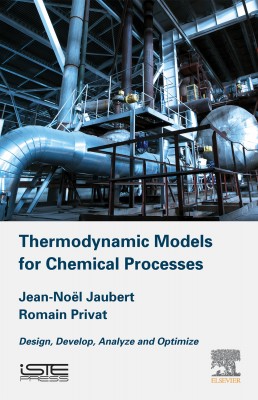
The selection of a relevant thermodynamic model is a prerequisite for the simulation and design of processes in the chemical and energy industries. In practice, this choice is often a real problem for the engineer or researcher who is not a specialist in thermodynamics.
In this book, we present the main methodologies governing the choice of a thermodynamic model adapted to the user’s needs.
Although this guide is deliberately concise, it nevertheless offers several levels of study. Beyond the complete model selection algorithms, it allows the reader to take a step back from the various thermodynamic modeling approaches and to understand in substance how to calculate thermodynamic properties and phase diagrams according to the chosen approach; it also highlights the strengths and weaknesses of most of the models available in process engineering software.
1. Correlations for the Estimation of Thermodynamic Properties of Pure Substances in the Liquid, Perfect Gas or Vapor–Liquid States.
2. Estimation of Thermodynamic Properties of Pure Substances Using an Equation of State: Overview of Available Models and Calculation Procedures.
3. Low-Pressure Vapor–Liquid and Liquid–Liquid Equilibria of Binary Systems: Activity-Coefficient Models.
4. Estimation of the Thermodynamic Properties of Mixtures from an Equation of State: An Overview of Models and Calculation Procedures.
5. General Summary: Decision Tree to Select a Thermodynamic Model in Order to Simulate or Design a Chemical Process.
Jean-Noël Jaubert is a teacher-researcher at the University of Lorraine, France. He teaches at the National School of Chemical Industries (ENSIC) and conducts his research at the Reaction and Process Engineering laboratory (LRGP). His research interests are in the field of process thermodynamics.
Romain Privat is a teacher-researcher at the University of Lorraine. He teaches at the European School of Materials Engineering (EEIGM) and ENSIC. He carries out his research at LRGP. His research interests are in the field of process thermodynamics.